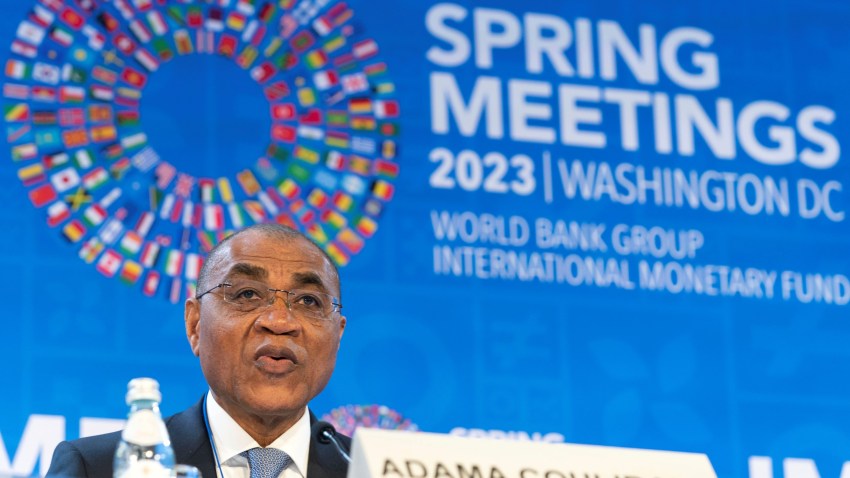This week, finance ministers, central bankers, business executives and leaders of civil society organizations gathered in Washington for the spring meetings of the International Monetary Fund, or IMF, and World Bank. The annual gathering comes amid multiple shocks—including the coronavirus pandemic, the war in Ukraine, supply chain issues, an energy crisis, extreme weather, debt and an international banking crisis—that have caused disruptions in the global economy.
Given this context, this week’s meetings were expected to lay out an ambitious agenda to create macroeconomic stability; formulate policy measures to jumpstart growth; and outline a roadmap for key initiatives to provide long-term solutions to present challenges, while also anticipating future ones. But African delegations who flew to Washington seeking a breakthrough on their key priorities—including inflation, debt distress, declining foreign investment and sluggish economic growth—are likely to leave town disappointed at the lack of concrete gains made this week.
The IMF-World Bank meetings are also taking place against a backdrop of growing pessimism about global economic conditions. “Growth remains weak by historical comparison—both in the near and medium term,” IMF Managing Director Kristalina Georgieva said in a speech last week, adding that there are likely to be stark differences between countries and regions. The fund projected that the global economy will grow by 2.8 percent this year and three percent next year in its World Economic Outlook report released this week. This was a decline of 0.1 percentage point from its January forecast.

